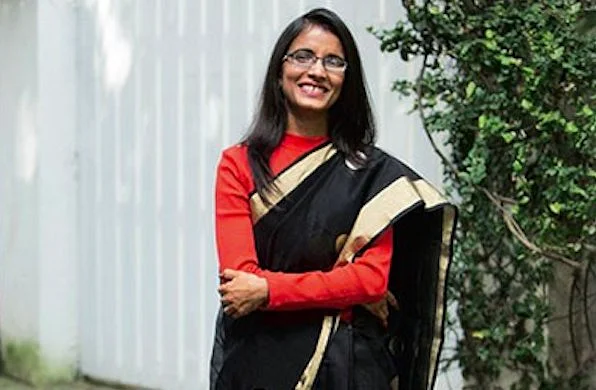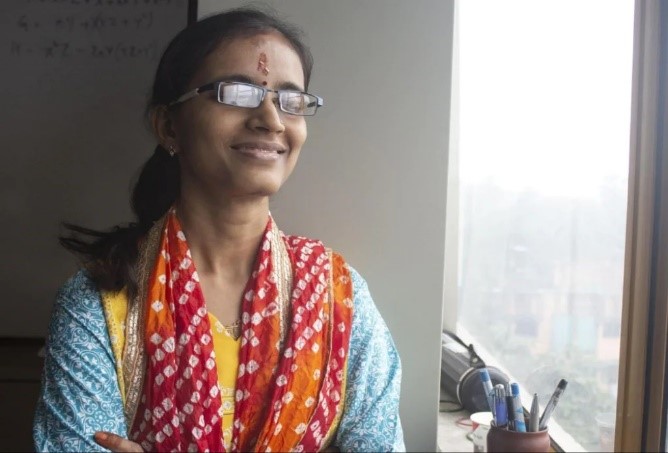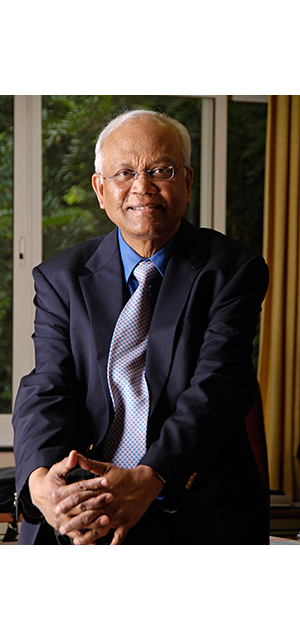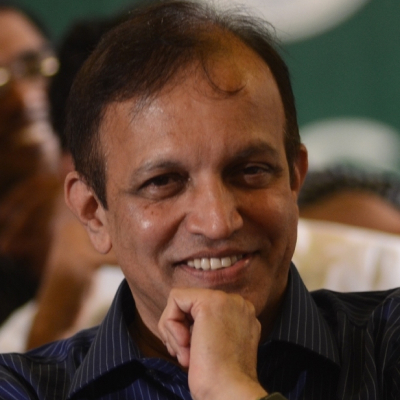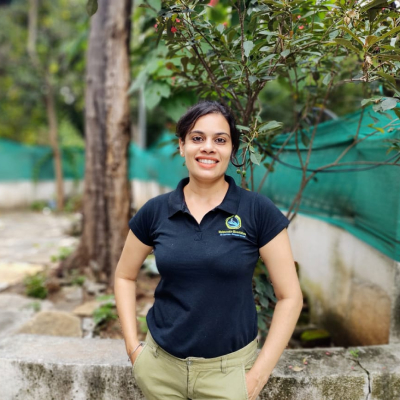– Kshitija Athlekar
When discussing women achievers in STEM, we can’t miss the young and intelligent mathematician Dr. Neena Gupta from the Indian Statistical Institute (ISI), Kolkata.
Even in the 21st century, Mathematics is still considered out of the women’s league. A recent study revealed that a typical mathematician is viewed as an “old, white, male, middle-class nerd” by almost all the youngsters. A female student is mainly advised to choose arts and commerce over science. If she still insists on science, then choose subjects like chemistry or biology but hardly Mathematics. Against all these odds, if a girl decides mathematics, it’s purely to get into engineering or architecture streams and rarely the pure mathematics is considered as a choice. Despite all these facts, Neena was persistent and resilient in pursuing her career in Mathematics.
Neena recollects her mother taking her maths studies and her father sparing most of his evenings with Neena and her brother asking mental maths questions when they were kids. It was that time when Neena first got interested in Math and enjoyed the pleasure of solving puzzles, problems and challenging her abilities.
Neena finished her schooling and college in Kolkata and then went to Indian Statistical Institute (ISI) to pursue her post-graduate studies. It’s here when she really worshipped the subject and never looked back. In her words, “Mathematics became her everything, her god!” Neena completed her Master’s Degree in 2008 and PhD in Algebraic Geometry in 2011. After her doctorate, Neena became a visiting scientist at ISI Kolkata, followed by a fellowship at The Tata Institute of Fundamental Research (TIFR) in Mumbai. She returned to ISI in 2012 after winning an “Innovation in Science Pursuit for Inspired Research” assistant professorship by the Indian Department of Science and Technology.
The year 2014 was a special year for Neena. This year, she became associate professor and made history by being the first person to solve the world’s most significant math problem, “The Zariski cancellation problem”, proposed by Oscar Zariski in 1949 and unsolved for as much as 70 years. As Neena says, Math gets complicated to explain in the layman’s language after a certain level. Still, she tries to put the Zarinski problem in simple words as “The cancellation problem asks that if you have cylinders over two geometric structures, and that have similar forms, can one conclude that the original base structures have similar forms?”
Neena has been showered with many prestigious accolades and honours for her pathbreaking research and work in Algebraic Geometry. The National Science Society awarded her a young scientist award and acknowledged her work as “one of the best works in algebraic geometry in recent years done anywhere.” The same year she was awarded the Swarnajayanti Fellowship by the Indian government. In 2015, she won the A.K. Agarwal Award for the best publication by the Indian Mathematical Society.
The list of her honours and awards do not end here. In the year 2019, this calm, hardworking, and determined woman came into the limelight after winning the prestigious Shanti Swaroop Bhatnagar Prize. The Bhatnagar Prize is considered the most prestigious award in India for science and technology given by the Prime minister. The award is notable for Neena as she made history by being the youngest and the third woman to win such a high accolade. The latest feather in her cap is the DST-ICTP-IMU Ramanujan Prize for Young Mathematicians from developing countries in 2021. It’s an extraordinary honour for Neena as she is the fourth Indian and third woman to win this prize. “This is my first international award, and I am happy that I could make my country proud. I am the fourth Indian to receive the award. People recognise us as Indians, coming from the land of Ramanujan and winning a prize named after him is very special,” she said in response.
Well, the work doesn’t end here. Neena is determined to do more. There are still many unsolved puzzles in mathematics, and she is up for new challenges. Neena love teaching her students and learning from them, “one needs to keep learning as there is no end to it,” she mentions.
Neena believes that it doesn’t matter if you are a boy or a girl; God has given the same abilities to both; it’s up to us to recognize our abilities, do the hard work, be patient and taste the success, be it mathematics, space science, cooking or nursing. One should have passion and perseverance to be a master of the chosen field. Neena was the only girl student during her masters and PhD, but her determination, love for the subject, and immense patience were her strengths to fight against all odds. Stereotyping a profession based on gender is not correct, and Neena has proved just the same with her unmatched success in the field of Mathematics!
Google Scholar link for Dr Neena Gupta’s research work: https://scholar.google.co.in/citations?user=7yNXEaYAAAAJ&hl=en
